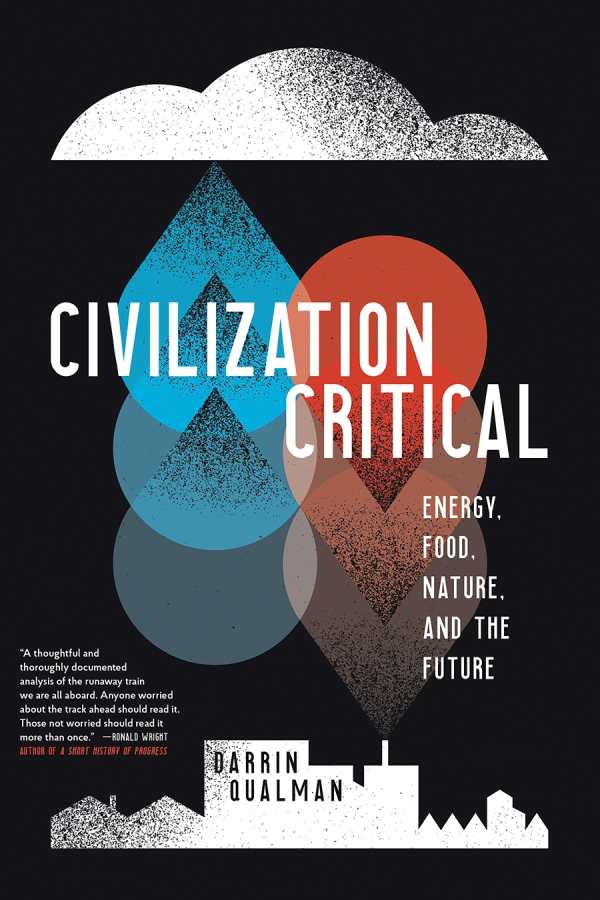Civilization Critical
Energy, Food, Nature, and the Future
Darrin Qualman’s expansive Civilization Critical is an astute assessment of human civilization that speaks of impending doom. Its stunning overview of the power that people wield over Earth’s resources includes historical perspectives, covering evolution in agriculture and industrial development and highlighting the fact that our current “eCivilization” has transformed the open, circular flow of nature into a linear system. “We push massive quantities of materials and fossil energies into one end,” writes Qualman, “and push massive quantities of food, cars, buildings, and consumer products out the other.”
All the more remarkable because of its broad scope, the book considers humanity’s impact on the Earth in areas including population growth, industrial production, energy consumption, governance, and the altering of time through “temporal expansion and acceleration.” Some economic experts may consider the book’s observations heretical; Qualman believes, for example, that pursuing GDP growth is a way to destroy the natural flow of the global economy. His rationale for such strident viewpoints is that civilization needs to be in harmony with nature, which exhibits circular rather than linear patterns.
Throughout this all-encompassing book, Qualman supports his arguments with extensive citations that include scholarly articles and statistical research. Charts and graphs help to identify key statistics. A concluding summary of the book’s content points to the serious need for massive transformation—essentially a makeover in all areas, including production, consumption, and society—to avoid doom.
Civilization Critical is the kind of book that raises immense global issues, provokes deep thought, and creates a sense of urgency about resolving the problems people caused in their inadequate stewardship of the planet. It is a disturbing but necessary call to arms.
Reviewed by
Barry Silverstein
Disclosure: This article is not an endorsement, but a review. The publisher of this book provided free copies of the book to have their book reviewed by a professional reviewer. No fee was paid by the publisher for this review. Foreword Reviews only recommends books that we love. Foreword Magazine, Inc. is disclosing this in accordance with the Federal Trade Commission’s 16 CFR, Part 255.

